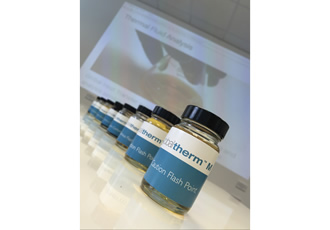A deeper look at thermal fluids

Thermal fluid specialist Global Heat Transfer has released a white paper highlighting best practice for maintaining one of the most overlooked processes in manufacturing - heat transfer.
Improper thermal fluid maintenance results in a laundry list of woes for plant managers, including significant breakdown, replacement and downtime costs. However, it’s the non-monetary complications that are far more worrying. If left to degrade, thermal fluids put property, lives and livelihoods at risk.
To help raise awareness and promote a proactive approach to thermal fluid maintenance, Global Heat Transfer has created a comprehensive guide for managing thermal oils. The white paper analyses the benefits of using a thermal fluid lifecycle maintenance plan, like Global Heat Transfer’s Thermocare.
The white paper outlines common problems with thermal fluids - like thermal cracking - and offers guidelines for avoiding the pitfalls that turn heat transfer systems into inefficient, unsafe, drains on company funds. This includes advice for best sampling practice, compliance with safety regulations and safety guidelines at every stage of a system's working life. The Dangerous Substances and Explosive Atmospheres Regulations (DSEAR) and the Explosive Atmosphere Directive (ATEX 137) are just two of the industry guidelines relevant for thermal transfer systems.
"It's important to remember that thermal fluids don't deteriorate and clog a system overnight. Degradation is steady if a system is operated properly," explained Clive Jones, Managing Director of Global Heat Transfer. "As fluid approaches the end of its practical working life, there is a gradual curve, which eventually drops off very sharply. This sudden change in the quality of thermal fluids is one of the reasons why regular and preventative maintenance is so important."
"Risks can be avoided and minds put at ease by regularly carrying out the proper tests under working conditions. Fluid analysis undertaken by competitors often comprises of a seven point test, whereas Global Heat Transfer's comprehensive test has eleven points to ensure oils are efficient, compliant and safe."
Downloads
Similar articles
More from Global Heat Transfer Ltd
- Steam versus thermal fluid 26th October 2016
- Are you taking unnecessary risks? 27th July 2016
- A stitch in time 28th June 2016
- The more, the merrier 18th December 2015












Write a comment
No comments